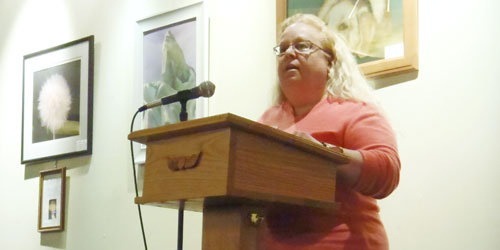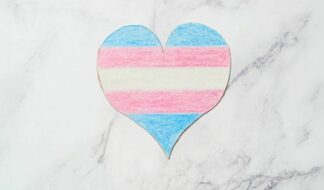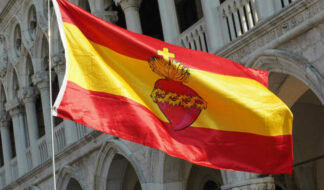
Sharon Janot is a doctoral student from Redford who is writing her dissertation on Queer Theology and Lutheran Confessions through the University of Birmingham in the UK. On Dec. 8 she presented some of her research at a luncheon for the Michigan Roundtable for Diversity and Inclusion. The luncheon brought over 30 clergy and faith leaders from over a dozen churches together to discuss the idea of using Queer Theory and Theology as a way to bridge gaps.
What if being "gay" was a social construct rather than a biological fact? Might a shift in the way individuals label and define themselves help those in the LGBTI-Q community reconcile their personalities and their religious beliefs?
These are some of the questions brought up by "Queering Theory," a philosophical movement that questions commonly held beliefs about gender and sexual orientation.
The goal is to "work past the impasse that has been created between those who welcome, include, affirm, bless, and perform marriages for LGBTI-Q persons, and those who feel they cannot based on an understanding of scripture and the historical tradition of the church," Janet said. She explained that she uses an off-set "Q" for the queer community, because "the Queer has a different set of questions about what it thinks are important. LGBTI-Q encompasses the breadth of what is generally understood to be sexual minorities, their allies, and those who claim affinity with queer in its multivalent meanings."
"A queer approach looks for gaps and fissures in texts that may lead to other and different conclusions. Could the tower of Babel be understood as a release of the diversity of God's people, rather than a sign of humanity's sinful climbing? Could the beloved disciple in John be an example of an erotic relationship with Jesus? Queer looks to discover what is between the lines, what is unsaid, what has been glossed over, and lives happily with ambiguity because there is always more to discover."
Janot's work has focused on the writings of "poststructuralist theorists like Michel Foucault who examined how power operates in systems like prisons and mental health hospitals, and Jacque Lacan who was working with psychoanalytic theory, and Jacque Derrida who was working with language in context." She also incorporates the writings of Martin Luther. The work of these authors is pulled into Queer Theology to help create a new way of looking at what it means to be queer.
"Queer Theology is a social constructionalist project. That is to say, it argues against essentialism, that which sees identity fixed, usually biologically, as something that cannot be changed. There is some comfort that we derive from an essentialist argument. This is the view expressed in the statement that we are 'born that way.' If we are born this way, then there is nothing to be done about it. We can't be changed. The wider culture will just have to accept this is how we are – after all, God doesn't make junk, or in the words of Psalm 139, we are 'fearfully and wonderfully made.' How can opponents to full inclusion argue that LGBTI-Q persons ought to be ostracized, denied entrance into the military, refused ordination, and face other legal, financial, housing and employment discrimination if this is just how we are intrinsically? Yet we know that discrimination continues apace."
Audience member Robert Hutchins asked, "Is it possible that we are constraining ourselves politically and religiously, as well as personally, by allowing acceptance to revolve around biological essentialism rather than a more creative way of being human?"
Janot noted that while same-sex love has always existed, there were never the labels "heterosexual" and "homosexual" before 1869. These labels were created by those in power to classify others based on their behavior. She argued that while there is a clear preference for opposite-sex affection, there is also strong social conditioning that encourages and reinforces it, such as images in advertising, social grooming in schools and families, and strong social penalties for varying from the cultural norm.
Those with power are the ones that created the labels, and by sticking with the binary of hetero vs. homo, it gives power to the norm according to Janot. Either you are normal or you are abnormal. And the argument is kept in the hands of those who are the norm. "The one with the power, the one that is favored, carries the most weight, gets to decide whether to let others play in the game."
Janot's work hopes to break from the binary perspective. "Traditionalists interprets the clobber texts in literal fashion. God prohibits homoerotic behavior. Period," she said. "On the other side, the revisionist appeals to contextualization. How can we take seriously the holiness code in regard to homoeroticism when we wear mixed fibers and eat shellfish? We go round and round, up and down, and never make any forward movement. This is because both the traditionalist and revisionist interpretations are strongly tied to historical criticism."
The presentation surprised many of the clergy present, giving them a new perspective to digest. Janot ended by saying "If you take anything with you today, I hope you have learned that Queer Theory and Theology seeks to disrupt and disturb hegemonic power, in the hope of living in a world that is dynamic, diverse and just."










